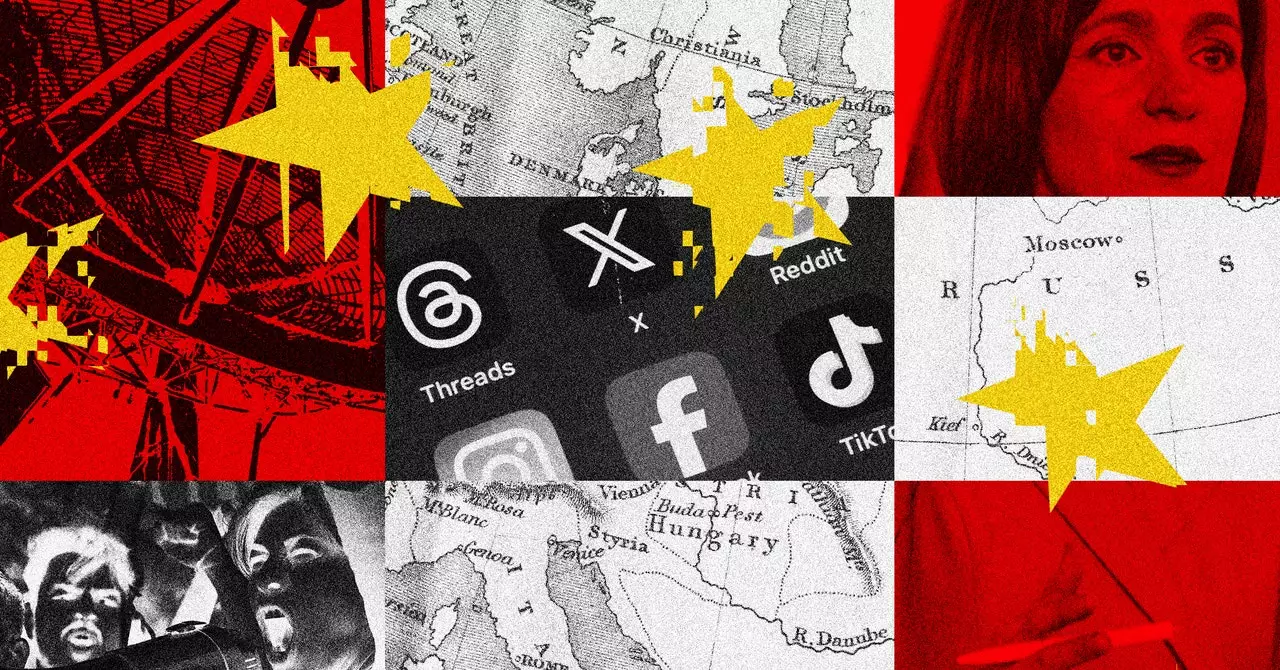The intersection of social media and politics has created a new dynamic in how elections are contested. A notable example emerged recently from Moldova, a nation of about 2.6 million people nestled between Ukraine and the European Union. As this small European country prepares for a significant presidential election, it has become a focal point for both local and international intrigue, especially regarding foreign meddling. A peculiar incident involving American actor Brian Baumgartner—best known for his role on “The Office”—illustrates the complexity of this modern electoral landscape. Baumgartner’s video, deployed in a pro-Kremlin narrative, openly called for the removal of Moldova’s pro-European leader, Maia Sandu. Such celebrity endorsements, albeit dubious, raise difficult questions about authenticity and influence in the age of digital communication.
As political tensions heightened in Moldova, researchers uncovered a multifaceted disinformation campaign likely orchestrated by Russian interests. This operation leverages platforms like Cameo, where celebrities record personalized messages to fans, which can be weaponized for propaganda. While these videos may seem innocuous or even humorous, they serve a higher agenda focused on inciting discord. The Molovan populace reported disturbing upticks in suspiciously named accounts flooding their feeds with anti-government sentiments, often linked to an aggressive pro-Kremlin agenda. It exemplifies how disinformation has evolved from simple meme-sharing to a highly organized strategy targeting political climate in nations vulnerable to external influence.
This digital incursion is not unique to Moldova; it’s part of a broader, ongoing struggle against disinformation worldwide. With the rise of sophisticated bots and tailored ads, social media platforms have unwittingly become battlegrounds for political manipulation. Reports suggest that Meta, the parent company of Facebook, benefited significantly from Russian-sponsored campaigns, raking in at least $200,000 in ad revenue. These financial motives indicate a troubling complicity, as the lines between user engagement and geopolitical strategy blur.
The intensity of these operations is alarming, particularly given the apparent helplessness of ordinary citizens in navigating this digital minefield. Ana Revenco, Moldova’s former interior minister and current director of the Center for Strategic Communication and Combating Disinformation, articulated the larger existential threat posed by these tactics. She emphasizes that Moldova’s plight reflects a global vulnerability to such manipulative strategies, urging other nations to recognize their susceptibility. If the Kremlin can exploit social media for its purposes in Moldova, there’s little doubt they could escalate their efforts elsewhere.
As the election approaches, it becomes increasingly evident that the stakes are high not just for Moldova, but for the integrity of democracy everywhere. The situation serves as a wake-up call for all countries: to safeguard their election processes from external manipulation, societies need to cultivate media literacy and transparent discourse to combat the spread of disinformation. As the world watches Moldova’s unfolding narrative, it’s crucial to acknowledge the lessons it imparts about the fragility of democracy in the face of technological warfare.

